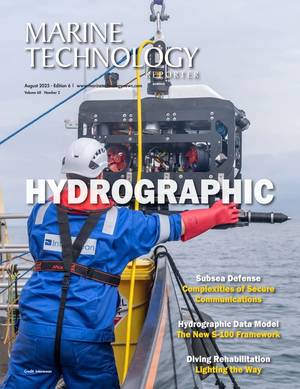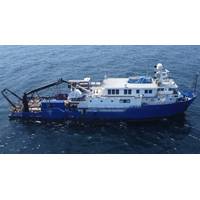
United Oil & Gas Signs Up TDI-Brooks for Survey Offshore Jamaica
United Oil & Gas has signed a non-binding memorandum of understanding (MoU) with TDI-Brooks to secure a specialist survey vessel for a campaign offshore Jamaica.The work is related to the planned piston coring and surface geochemical program on the company’s Walton Morant Licence.The campaign forms a key part of United's forward work program under its extended license to January 2028. The survey will involve the collection of 40-60 seabed core samples across the Walton and Morant Basins, accompanied by bathymetric, multibeam echo-sounding and heat-flow surveys.The data will be analyzed
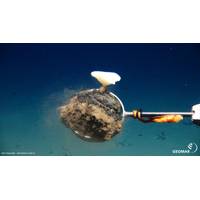
Third Phase of Deep-Sea Mining Impact Research Begins
Zone in the Pacific. Further cruises with Dutch and Polish research vessels will target seafloor massive sulfide deposits along the Arctic Mid-Ocean Ridge.MiningImpact3 was formally launched in July at a side event during the 30th session of the International Seabed Authority (ISA) in Kingston, Jamaica.A key contribution to the ISA negotiations was the publication of the project’s Ecotox Report. This report reviews existing national and international regulations from related sectors such as oil and gas production, dredging and bottom trawling, and derives recommendations for developing environmen

Bahrain Sponsors Impossible Metals Deep Sea Mining Permit Application
; application for a mining permit with the International Seabed Authority, becoming the first Middle Eastern country to throw its support behind the fledgling industry as part of an economic diversification push.Privately-held Impossible Metals last Friday filed a 170-page application with the Jamaica-based ISA for a permit to mine part of the Pacific Ocean known as the Clarion-Clipperton Zone that contains polymetallic nodules filled with manganese, copper, nickel and other building blocks of electric vehicles and electronics.Any country can allow mining in its territorial waters. The United
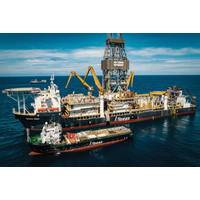
Trump Order Fast Tracks Subsea Mining
, CEO of the company, which aims to extract nodules from a vast plain of the Pacific Ocean between Hawaii and Mexico known as the Clarion-Clipperton Zone.Beyond The Metals Company, others eyeing deep-sea mining include California-based Impossible Metals, Russia's JSC Yuzhmorgeologiya, Blue Minerals Jamaica, China Minmetals, and Kiribati's Marawa Research and Exploration.U.S. access to critical minerals - especially those produced by Chinese companies - has dwindled in recent months as Beijing has limited exports of several types. That, in turn, has ratcheted up pressure on Washington to support
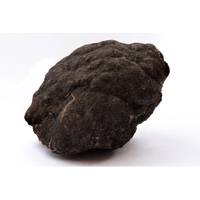
White House Could Bypass UN on Deep-Sea Mining
to marine life.Any country can allow deep-sea mining in its own territorial waters, roughly 200 nautical miles from shore. Governments most interested in developing deep-sea mining industries in their waters include the Cook Islands, Norway and Japan.The 36-member ISA council met again in Kingston, Jamaica, earlier this month to review hundreds of proposed amendments to a 256-page draft mining code for international waters, although the meeting ended without resolution.The ISA's lack of progress led Vancouver-based The Metals Co - which is backed by metals giant Glencore - to formally ask Washington
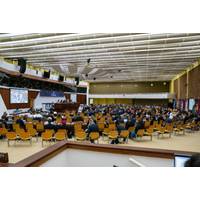
ISA Elects Secretary General as Calls Grow to Pause Deep-Sea Mining
deep-sea mining will take time and that no mining application should be approved before they are complete.Canada's The Metals Company (TMC) has said it is seeking a license by year-end to extract minerals from the ocean floor.MEETINGSThe ISA last week finished a series of meetings in Kingston, Jamaica, where the 36 member council was drafting a mining code that would regulate the exploration and extraction of "polymetallic nodules" and other deposits on the ocean floor.Negotiators have been racing to ensure that formal rules are in place before mining activity begins. Those rules are
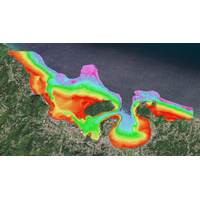
TCarta Plans Bathymetric Mapping Workshop for Jamaica
TCarta Marine, a global provider of hydrospatial products and services, will conduct a week-long coastal bathymetric mapping workshop for hydrographic surveyors in Jamaica. The workshop will be hosted by the Jamaica National Land Agency (NLA) and funded by The Nippon Foundation-GEBCO Seabed 2030 project.Scheduled for the week of February 5, 2024, at the NLA Surveys & Mapping Division headquarters in Kingston, Jamaica, the workshop will instruct participants in the use of satellite-derived bathymetry (SDB) technology with the TCarta Trident Geoprocessing Toolbox. The software-as-a-service SDB
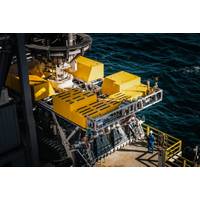
Canada's TMC to Seek Seabed Mining License in 2024
at the ISA's Assembly meeting last week."The meeting ended without a moratorium on deep-sea mining being discussed, despite clear and widespread support," said Martin Webeler, a researcher with the Environmental Justice Foundation.Webeler and other campaigners attending the ISA meetings in Jamaica said members of the Chinese delegation had refused to allow discussion of a moratorium."The ability of one state to prevent delegates from even talking about a pause again highlights the fundamental flaws of the ISA," he said.Responding to the claims on Thursday, China's foreign ministry
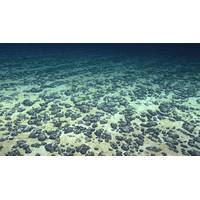
Deep-sea Mining: A New Gold Rush or Environmental Disaster?
land-based extraction as part of the world's shift from fossil fuels to renewable energy.More than a dozen nations have sponsored small-scale exploration projects, but commercial mining of international waters is not permitted - something which will be debated at a key U.N. meeting on the issue in Jamaica, beginning this week.Gerard Barron, CEO of The Metals Company (TMC), which is leading efforts to hoover up the nodules thousands of metres deep underwater, said that mining the ocean does less damage to nature than extraction in places like the Indonesian rainforest."Our oceans are full of

 August 2025
August 2025
